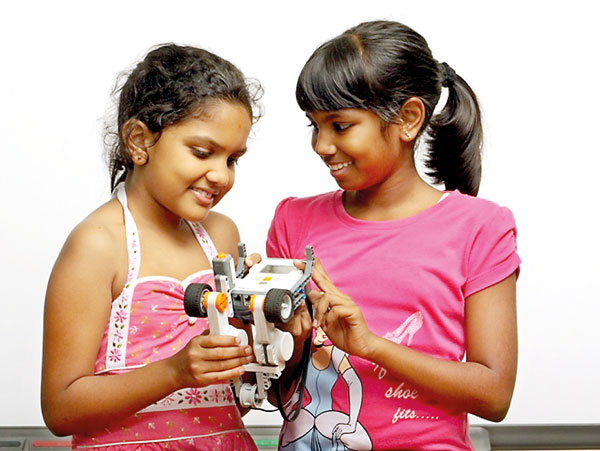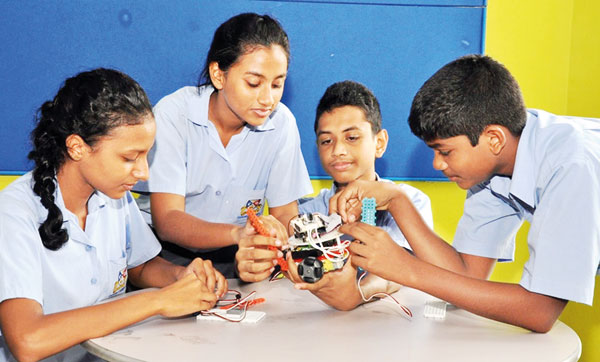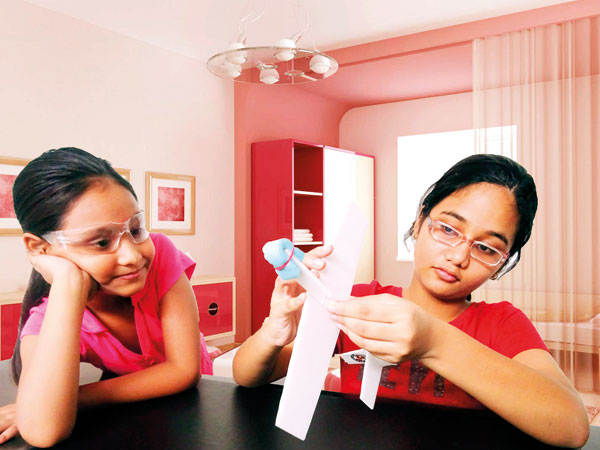STEM Education and Robotics -Need of the Hour
STEM education; an interdisciplinary approach to Science, Technology, Engineering and Mathematics using inquiry methods to develop problem-solving skills and draw real-world connections to the workforce and community. The importance of STEM education is being increasingly brought into focus by educationists the world over. The disciplines of Science, Technology, Engineering and Mathematics are seen to be the propelling force of the shape of things to come.
 Robots fascinate children and adults alike and are popular due to their presence in TV, movies, and literature. Their applications in numerous areas like industry, medical care, housekeeping, area exploration, etc. are also well covered in the media.
Robots fascinate children and adults alike and are popular due to their presence in TV, movies, and literature. Their applications in numerous areas like industry, medical care, housekeeping, area exploration, etc. are also well covered in the media.
Robotics encourage kids to think creatively, analyse situations and apply critical thinking and problem solving skills to real world problems.
Gateway Schools of Computing have embarked on yet another pioneering initiative by integrating STEM education and Robotics to the courses offered. Our program, in partnership with My STEM Labs India, allows students to design and develop their own robot. As an organization that encourages and motivates our students to be innovative, Gateway believes that these programme will set the trend to new and exciting ways of learning.
Why it is a need of the hour?
- 80% + of employers say that schools are not preparing students for the workplace
- 75% + of students say they feel unprepared for college/career and that more math & science would help.
- Children are distracted by Internet, computer games, TV for up to 30 hours a week in wasteful activities and STEM will get them back on education in an enjoyable manner.
- Jobs in occupations related to STEM is project to grow more than 9 million between 2012 – 2022 ( U.S. Bureau of Labor Statistics).
- Less than 15% of high school students have enough math and science knowledge to pursue scientific/technical degrees in university.
 Why STEM based learning is important?
Why STEM based learning is important?
Children feel more involved with their learning and they will get most out of it. This is very essential to build a liking towards learning from an early age.
STEM is known as ‘experiential learning’. It is very hands-on and skill based. STEM requires children to do things with their hands and discover knowledge which is the best way to learn. It is very different to lecture based learning.
STEM caters all sorts of learning styles. It can be tailored to suit a child’s abilities and educational level too. STEM can be used to push children to the limit of their abilities, test out their problem-solving skills, their critical thinking and their engagement in the subject.
STEM instills creativity. Creativity can co-exist with science and technology, this will support building a generation who will be innovators needed by the world in future.
Our approach
Projects mapped across various curricula (Sri Lanka National Syllabus and Edexcel or customized to suit requirements)
Syllabus mapped to science activities from Grade 1 to Grade 10 and conducted at our centres or in your school/ institute premises
Learn-while-doing approach (project based learning)
Each activity is accompanied with a pack with required material which is centred around a scientific investigation, One kit per student, no sharing basis. This kit can be taken home
 Clear-step-by-step procedures for teachers and/or students for each activity
Clear-step-by-step procedures for teachers and/or students for each activity
Additional worksheets and assessments where necessary
Benefits to school and teachers
Efficient and innovative teaching methods
To make difficult and boring topics much easier and interesting
Effective use of educational resources
Streamlining of operational aspects
Improving the overall image of school
Free training and support from course providers
For further details and demonstrations get in touch with our island wide centres: Borella : 2 670633/ 2 699642, Bambalapitiya : 2 502100/ 2 583858, Nugegoda : 2 816815/ 2 829334, Panadura : 038-2240386, Kandy : 081-2233587, Galle : 091-2233677, Matara : 041-2222083


